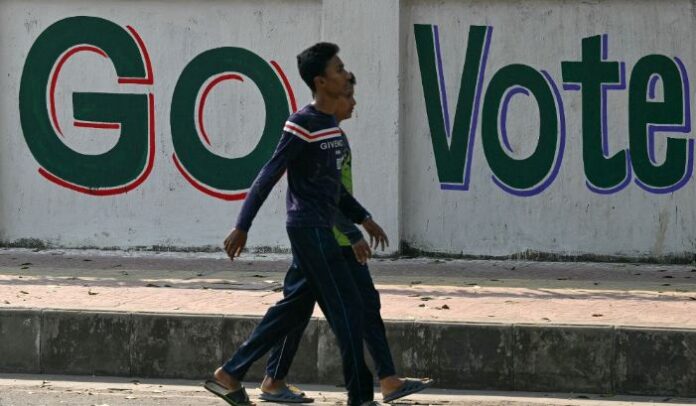DHAKA, JAN 6: As Bangladesh gears up for its 12th presidential election on January 7 (tomorrow), the air is thick with tension and uncertainty. The country faces a stark divide, with the ruling Awami League promising continuity and the opposition Bangladesh Nationalist Party (BNP) raising concerns about fair play and declaring a boycott.
With 300 National Assembly seats on the line, Tensions have spiked, as the opposition BNP has announced a boycott of the polls, calling them ‘dummy’ and announcing countrywide protests. On Wednesday, the country had deployed the army to facilitate the administration with holding free and fair elections.
Moreover, if outgoing prime minister Sheikh Hasina Wajid emerges victorious, she is poised to assume office as the premier for the fifth time.
While this is the 12th presidential election, only three have been direct elections. Following independence in 1974, the speaker of the Assembly, Mohammad Mohammadullah, became the first president without formal elections.
Awami League Dominance and Opposition Concerns:
Prime Minister Sheikh Hasina’s Awami League has emerged victorious in the last three general elections (2008, 2014, and 2018), often with overwhelming majorities. However, the BNP, the country’s largest opposition party, has long accused the Awami League of rigging elections and stifling dissent.
BNP Chairman Tarique Rahman, who spent 18 months in jail in 2006-07 and currently lives in a self-imposed exile in London, sees the election as “predetermined” and has urged voters to abstain. This boycott poses a significant challenge to the legitimacy of the upcoming polls.
Timeline of Bangladesh’s Electoral History:
A brief look at Bangladesh’s recent electoral history reveals a pattern of Awami League dominance, often marked by boycotts and controversies:
2018: Awami League-led grand alliance wins landslide victory with 261 out of 300 seats in the elections held on Dec, 30, 2008, prompting accusations of rigging by the BNP.
2014: BNP boycotts the election held on 5 Jan, 2014, citing lack of fairness, leading to an Awami League landslide with a two-thirds majority. After a crackdown, opposition leader Khaledia Zia was put under house arrest.
2008: Awami League secures a two-thirds majority with 263 of the 300 seats in the election held on Dec, 29, 2008.
2001: In the elections held on Oct, 1, 2001. The BNP emerged as the clear winner in terms of seat, winning a secure majority of 193 out of 300 seats. The Awami league (AL) secured 62 seats. Khaleda Zia became the prime minister for the second time.
1996: The AL won the elections held on June 12, 1996 with 146 out of 300 seats in the National Assembly with the support of the Jatiya Party. This marked the beginning of Sheikh Hasina Wajid’s rule as the prime minister for the first time.
1986: The Bangladeshi presidential election were held on October, 15, 1986. The result were a victory for Jatiya Party, as its head Hussain Muhammad Ershad – a military dictator – helmed power and became the prime minister after staging a military coup.
Uncertainty Ahead:
With the BNP’s boycott and concerns about fair play, the upcoming election casts a shadow of uncertainty over Bangladesh’s political future. Whether the polls can be conducted peacefully and transparently, and whether they will be accepted by all parties, remains to be seen.
The country stands at a crossroads, and the choices made in the coming days will have profound implications for its democratic trajectory.

















